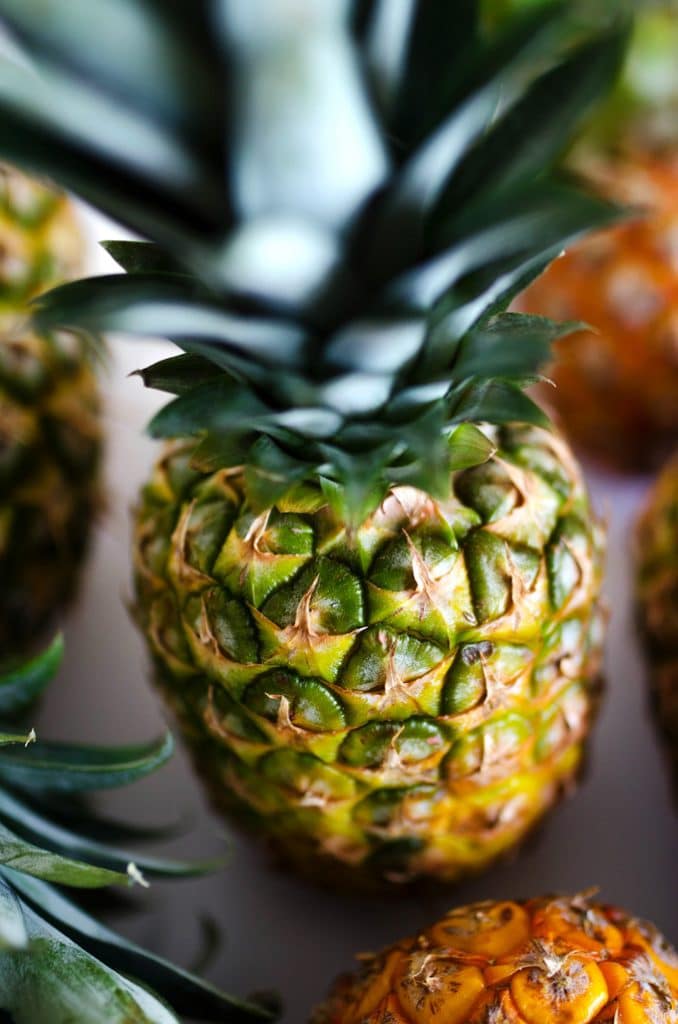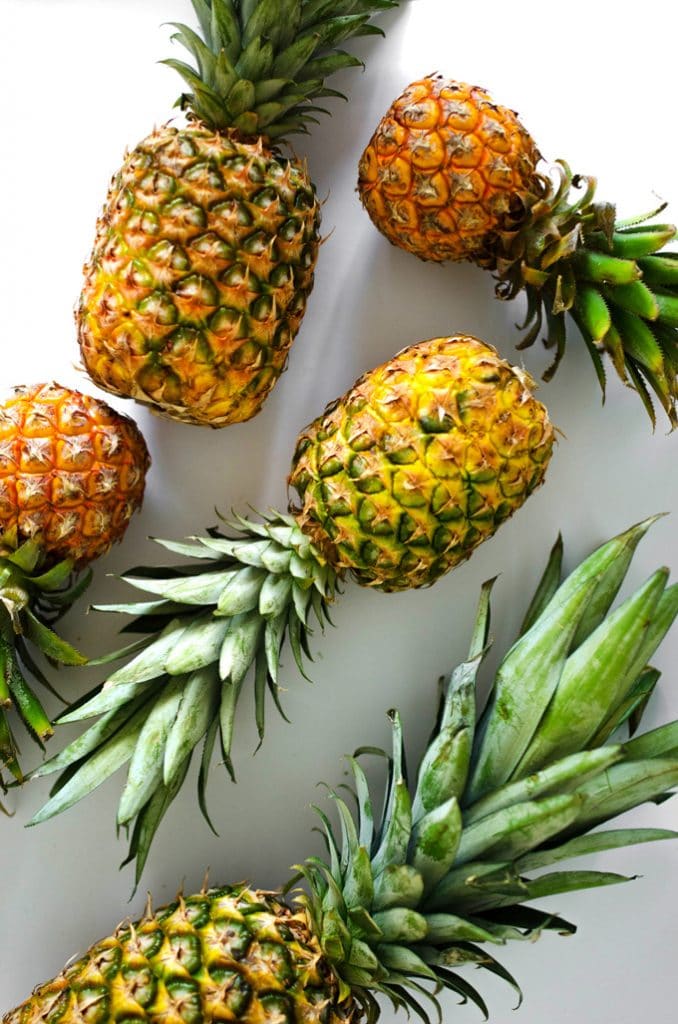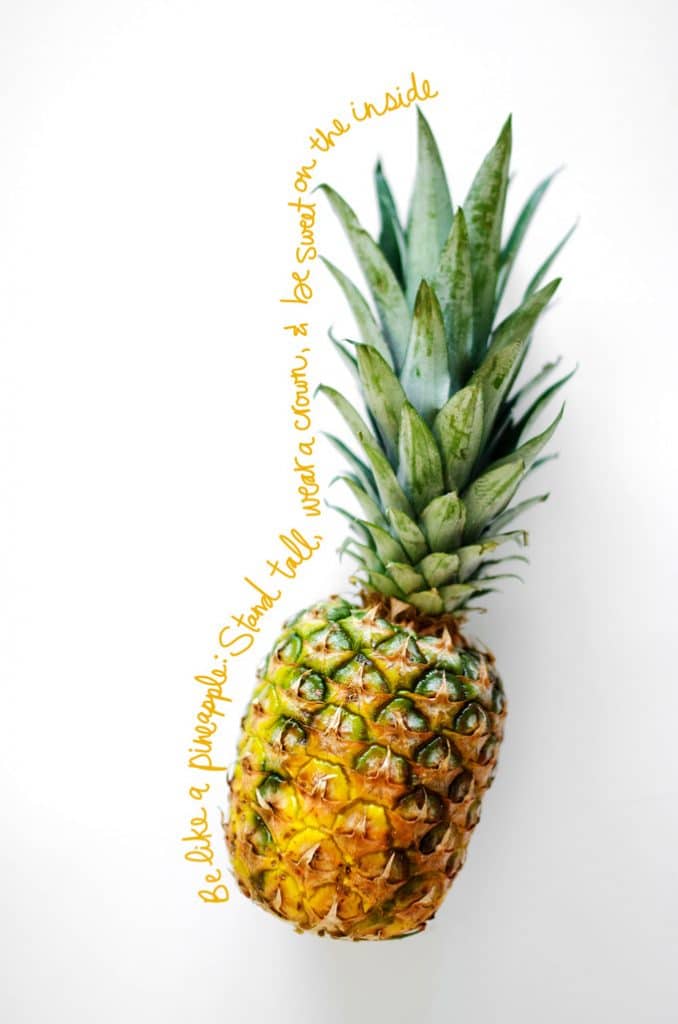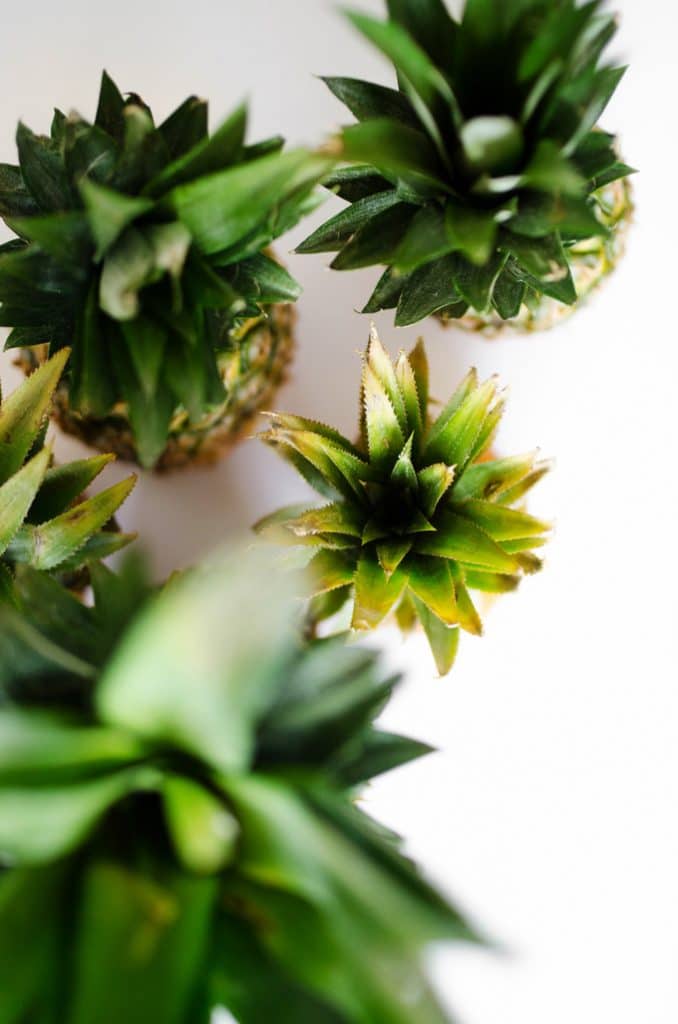How to Open a Pineapple the Right Way
Everything you need to know about pineapple! Why does it hurt your mouth? How do you know when it's ripe? All your questions answered here!

Eatmail subscribers already know that I am super excited about this spotlight ingredient, because after much deliberation, I think I can say pineapples are my favorite fruit.
The boyfriend-tulip-man, being Dutch and therefore very direct and sensible, says you can only have one "favorite" thing. And, naturally, that puts a lot of weight on my decisions regarding favorite things. I really like tacos, but I'm not sure I'm ready to say it's my favorite. The color yellow is great, but can I really say it's my favorite? Well guess what? Pineapple is my favorite fruit.
And for the next two weeks we're going to be all about it here on LEL. As usual, today is all about the learns. I've researched and written up everything you really need to know about pineapple, starting with the question of the century…why does it make my mouth hurt?!
Why does pineapple make my mouth hurt?
Fresh pineapple contains an enzyme called bromelain, which breaks down proteins. So essentially, the enzyme is working away at your mouth as you chew the pineapple, which can cause some irritation, tingling, or pain.
Once you swallow the pineapple, your stomach has what it needs to protect itself from bromelain, so fear it not! In fact, bromelain may even help reduce inflammation in other areas of the body, like in joints and soft tissue, sinuses, and intestines.

How to pick the perfect pineapple
Contrary to popular belief, pineapples do not ripen after they are picked, which means you'll want to pick the ripest one when purchasing. There are a few ways to determine if it's ripe (hint: the external color of the fruit doesn't necessarily indicate ripeness):
- Smell the bottom. If it smells strong, sweet, and fragrant, it's probably ripe. No smell? Not ripe!
- Pluck a leaf from the center of the crown. If it comes out easily, it's probably ripe.

How To Store Pineapples
Because pineapples don't ripen after being picked, they can only get less tasty with age, so proper storage is essential!
- Room temperature: You can store uncut pineapples at room temperature for about 3 days.
- Refrigerated: You can also store uncut pineapples in the warmest part of your fridge (usually the top), where they will last longer (though the leaves and outer skin may brown slightly). Cut pineapple should always be stored in an airtight container in the fridge or freezer.
Favorite Pineapple Recipes
- Pineapple Smoothie
- Grilled Pineapple Salsa
- Pineapple Tepache
- Pineapple Upside Down Pancakes

Nutrition information for pineapple
per 1 cup of pineapple chunks (165 g)
- Calories: 82
- Carbohydrates: 22 g
- Fiber: 2.3 g, 9% of Daily Value (DV)
- Protein: 0.9 g
- Fat: 0.2 g
- 131% DV of Vitamin C: A water-soluble vitamin that acts as an antioxidant to fight against potentially damaging free radicals (molecules with unshared electrons that float around wreaking havoc) and an important cofactor in collagen synthesis.
- 10% DV of Vitamin B6 (Pyridoxine): A water-soluble vitamin that works behind the scenes as a coenzyme in many important reactions within your body, including protein metabolism and red blood cell formation, among countless other functions.

Reader Interactions
How to Open a Pineapple the Right Way
Source: https://www.liveeatlearn.com/pineapple/